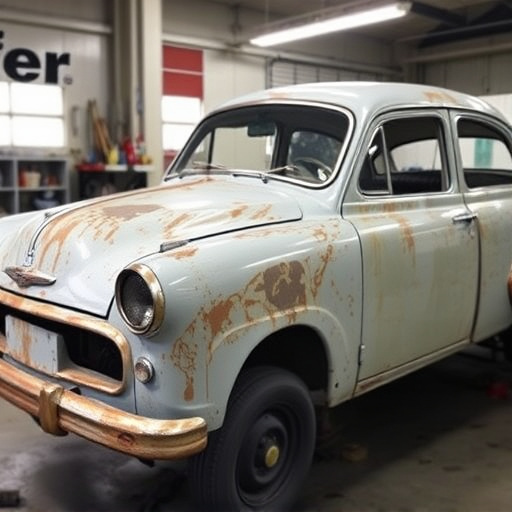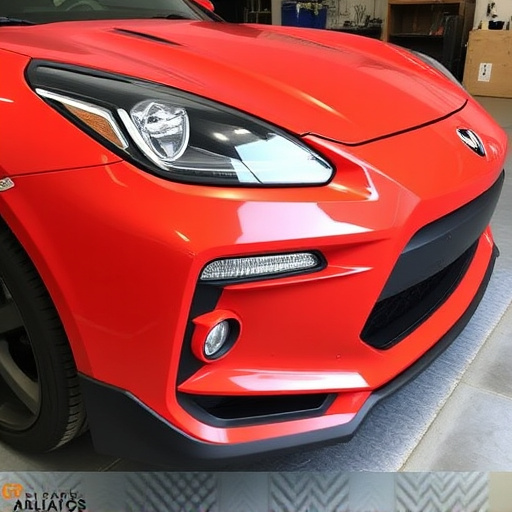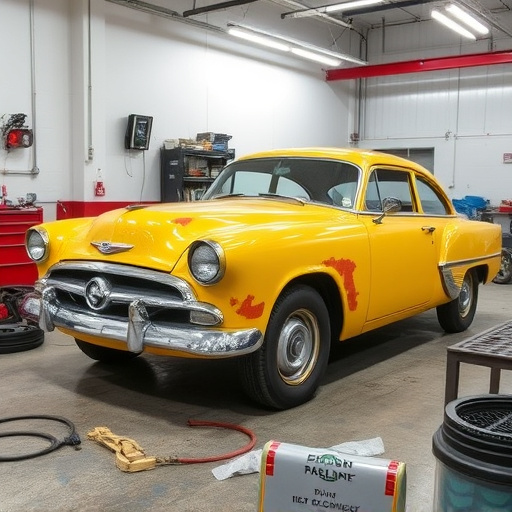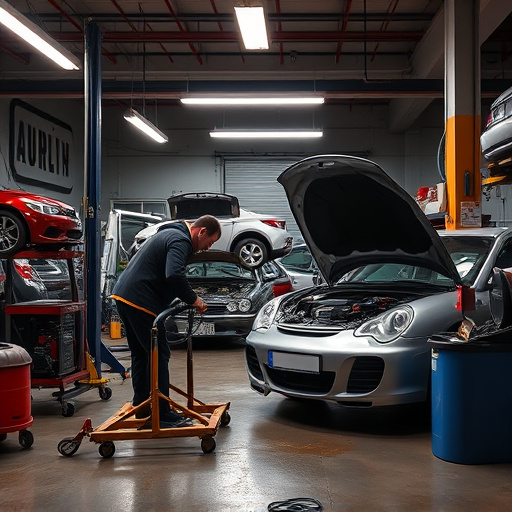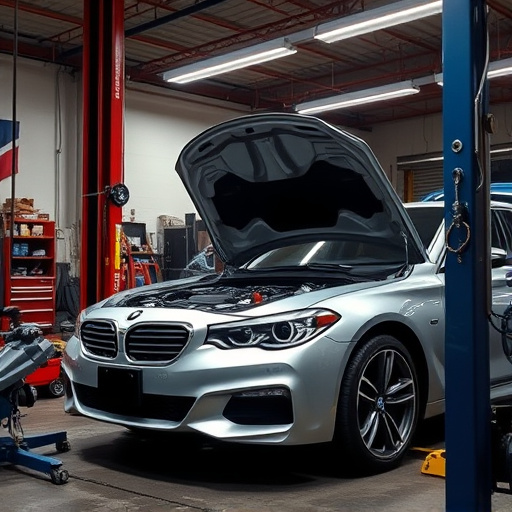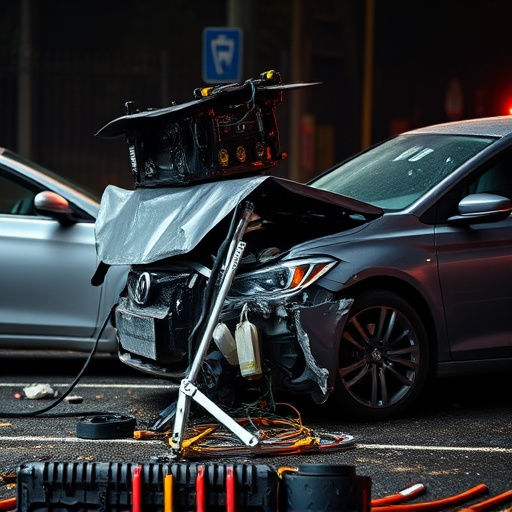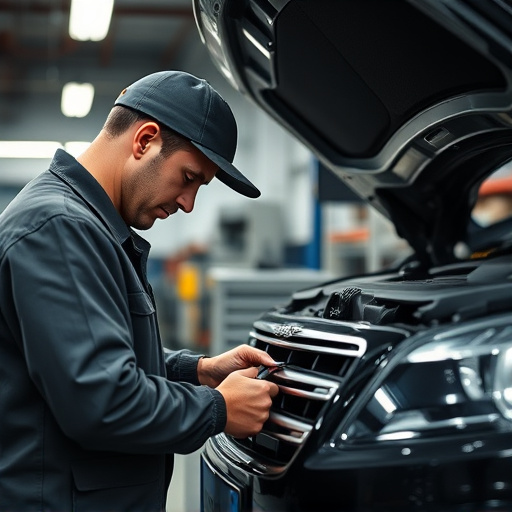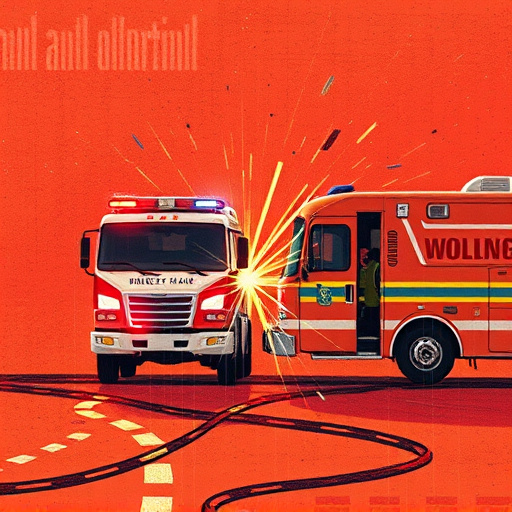Silicon bronze welding is a specialized technique for automotive body work, requiring understanding of alloy properties and specific welding processes like TIG. Hands-on training equips technicians with arc and TIG welding skills, crucial for precision and structural integrity in projects from repairs to dent removal. Safety is paramount, with knowledge of material hazards and appropriate PPE essential; adhering to industry standards ensures high-quality, aesthetically precise work.
In the realm of advanced materials, silicon bronze welding stands out as a game-changer. This article explores the essential training requirements for silicon bronze welding technicians, focusing on fundamental knowledge, hands-on skills, and safety protocols. Understanding the unique properties of silicon bronze is crucial, as it necessitates specific welding techniques to ensure structural integrity and durability. Additionally, we delve into regulatory compliance, emphasizing the importance of safety in this specialized field.
- Understanding Silicon Bronze Welding Fundamentals
- Hands-On Training for Welding Techniques
- Safety Protocols and Regulatory Requirements
Understanding Silicon Bronze Welding Fundamentals

Silicon bronze welding is a specialized technique that involves joining metals with distinct properties, primarily used in various industries such as automotive body work and vehicle collision repair. To master this skill, technicians must grasp the fundamentals, including the unique characteristics of silicon bronze, its alloy composition, and the specific welding processes required to create strong, durable bonds.
Understanding the ideal conditions for silicon bronze welding is crucial. This includes knowledge of melting points, viscosity behavior, and the potential for oxidation during the welding process. Technicians should also be familiar with different welding methods suitable for this metal, such as TIG (Tungsten Inert Gas) welding, which allows for precise control over heat input, ensuring minimal distortion and maximizing the integrity of the welds in auto collision centers.
Hands-On Training for Welding Techniques
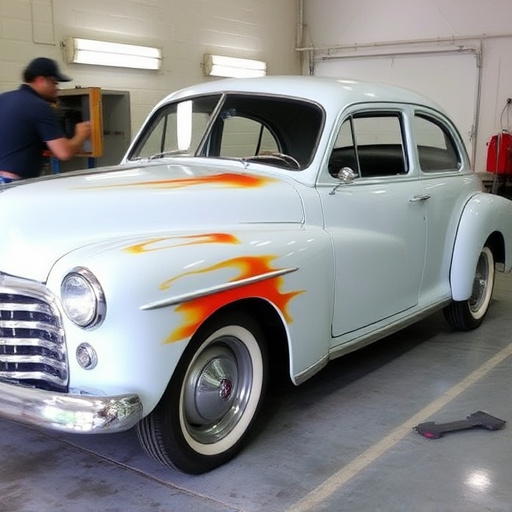
Hands-on training is a cornerstone of becoming proficient in silicon bronze welding. This involves direct practice on various materials and equipment, allowing technicians to develop their skills through experience. During this phase, aspiring welders learn the intricacies of joining silicon bronze, a versatile alloy known for its corrosion resistance and aesthetic appeal. They master different welding techniques, including arc welding and TIG (Tungsten Inert Gas) welding, each requiring precision and an understanding of material properties.
In a professional setting, such training often takes place in dedicated workshops or body shop services where technicians can work on real-world projects. This practical experience is invaluable for preparing welders to handle complex repairs, from car scratch repair to dent repair, ensuring structural integrity while achieving the desired aesthetic finish.
Safety Protocols and Regulatory Requirements
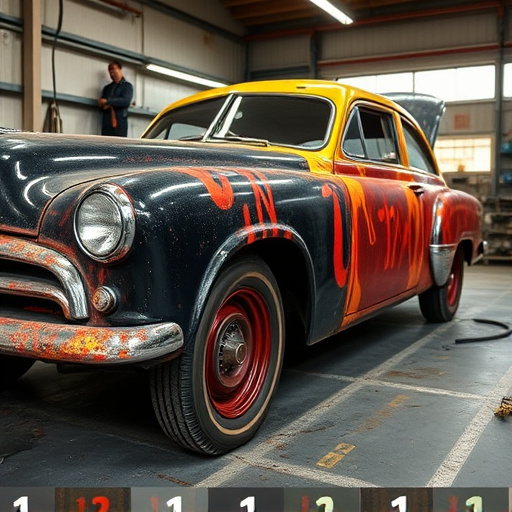
In the realm of silicon bronze welding, safety protocols and regulatory requirements are paramount. Before initiating any welding process, technicians must familiarize themselves with potential hazards associated with the material, including its reactivity and flammability properties. Personal Protective Equipment (PPE), such as specialized protective clothing, eye shields, and respirators, is mandatory to shield against harmful fumes and sparks. Adherence to these safety measures not only safeguards the welder but also minimizes risks in the immediate vicinity, especially in environments like auto body services where other personnel and equipment are present.
Regulatory compliance is another critical aspect for silicon bronze welding technicians. Various organizations, including industry-specific bodies and national regulatory agencies, mandate specific standards and guidelines to ensure quality and safety. For instance, those engaged in Mercedes Benz collision repair or similar vehicle repair services must adhere to stringent protocols to maintain structural integrity and aesthetic precision. Staying updated with these regulations not only ensures the excellence of work but also prevents legal repercussions and potential liabilities related to non-compliance.
Silicon bronze welding requires a strong foundation in fundamental knowledge, practical skills, and safety protocols. By understanding the unique properties of silicon bronze and mastering various welding techniques, technicians can produce high-quality, durable joints. Adhering to strict safety standards and staying updated with regulatory requirements ensures not only the well-being of welders but also the integrity of the final products. With the right training, Silicon bronze welding technicians can confidently navigate this specialized field, contributing to innovative and reliable manufacturing processes.


